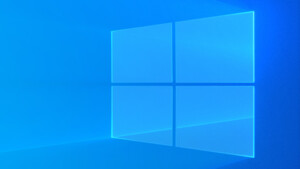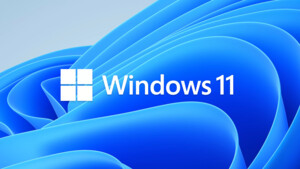auf meinem PC, bei dem ich vor über einem Jahr Win10 installiert habe und der bislang problemlos lief, gibt es seit einigen Tagen immer wieder Abstürze mit Neustarts (1-2 mal pro Tag).
Ich habe vor Beginn dieser Probleme, mit Ausnahme der Virenscanner-Updates, so gut wie nichts verändert; weder irgendwelche Programme neu installiert noch deinstalliert.
Memtest 86 v7.5 (stundenlang gelaufen in mehreren Durchgängen) zeigt keine Speicherprobleme.
sfc /scannow hat ebenfalls keinerlei Probleme entdeckt.
Hitzeprobleme gibt es auch keine, bedingt durch einen sehr leistungsstarken Kühler läuft die CPU mit ca. 53-55°C.
Die Windows-Ereignisanzeige sagt folgendes: Ereignis ID: 1001. Der Computer wurde nach einem schwerwiegenden Fehler neu gestartet. Der Fehlercode war: 0x0000001e (0xffffffffc0000005, 0x0000000000000000, 0x0000000000000008, 0x0000000000000000). Ein volles Abbild wurde gespeichert in: C:\Windows\MEMORY.DMP. Berichts-ID: b4ae22cc-94ed-4f00-b97a-711606e4becc.
Die mittels "WhoCrashed" ausgelesenen memory dump und minidump files sagen folgendes:
System Information (local)
--------------------------------------------------------------------------------
Computer name: GPUGRID-WIN10
Windows version: Windows 10 , 10.0, version 1803, build: 17134
Windows dir: C:\Windows
Hardware: ASUSTeK COMPUTER INC., P9X79 WS
CPU: GenuineIntel Intel(R) Core(TM) i7-4930K CPU @ 3.40GHz Intel8664, level: 6
12 logical processors, active mask: 4095
RAM: 34297679872 bytes (31,9GB)
Crash Dump Analysis
--------------------------------------------------------------------------------
Crash dumps are enabled on your computer.
Crash dump directories:
C:\Windows
C:\Windows\Minidump
On Sun 16.06.2019 23:57:16 your computer crashed or a problem was reported
crash dump file: C:\Windows\Minidump\061619-37515-01.dmp
This was probably caused by the following module: ntoskrnl.exe (nt+0x1AA0A0)
Bugcheck code: 0x1E (0xFFFFFFFFC0000005, 0x0, 0x8, 0x0)
Error: KMODE_EXCEPTION_NOT_HANDLED
file path: C:\Windows\system32\ntoskrnl.exe
product: Microsoft® Windows® Operating System
company: Microsoft Corporation
description: NT Kernel & System
Bug check description: This indicates that a kernel-mode program generated an exception which the error handler did not catch.
This might be a case of memory corruption. This may be because of a hardware issue such as faulty RAM, overheating (thermal issue) or because of a buggy driver.
The crash took place in the Windows kernel. Possibly this problem is caused by another driver that cannot be identified at this time.
-----------------------------------------------------
On Sun 16.06.2019 23:57:16 your computer crashed or a problem was reported
crash dump file: C:\Windows\MEMORY.DMP
This was probably caused by the following module: ntkrnlmp.exe (nt!RtlCaptureStackBackTrace+0x62D)
Bugcheck code: 0x1E (0xFFFFFFFFC0000005, 0x0, 0x8, 0x0)
Error: KMODE_EXCEPTION_NOT_HANDLED
Bug check description: This indicates that a kernel-mode program generated an exception which the error handler did not catch.
This might be a case of memory corruption. This may be because of a hardware issue such as faulty RAM, overheating (thermal issue) or because of a buggy driver.
The crash took place in the Windows kernel. Possibly this problem is caused by another driver that cannot be identified at this time.
Conclusion
--------------------------------------------------------------------------------
2 crash dumps have been found and analyzed. No offending third party drivers have been found
Natürlich habe ich mittlerweile ausgiebig gegoogelt, eigentlich nur um - frustrierenderweise - herauszufinden, daß dieses Problem so gut wie durch alles und jedes verursacht werden kann - Hardware wie auch Software.
Gibt es hier trotzdem vielleicht jemanden, der aufgrund seiner/ihrer fachlichen Kenntnisse und Erfahrungen aufgrund der oben gezeigten Fehlermeldungen zumindest einen bestimmten Verdacht äußern kann?
Ich habe vor Beginn dieser Probleme, mit Ausnahme der Virenscanner-Updates, so gut wie nichts verändert; weder irgendwelche Programme neu installiert noch deinstalliert.
Memtest 86 v7.5 (stundenlang gelaufen in mehreren Durchgängen) zeigt keine Speicherprobleme.
sfc /scannow hat ebenfalls keinerlei Probleme entdeckt.
Hitzeprobleme gibt es auch keine, bedingt durch einen sehr leistungsstarken Kühler läuft die CPU mit ca. 53-55°C.
Die Windows-Ereignisanzeige sagt folgendes: Ereignis ID: 1001. Der Computer wurde nach einem schwerwiegenden Fehler neu gestartet. Der Fehlercode war: 0x0000001e (0xffffffffc0000005, 0x0000000000000000, 0x0000000000000008, 0x0000000000000000). Ein volles Abbild wurde gespeichert in: C:\Windows\MEMORY.DMP. Berichts-ID: b4ae22cc-94ed-4f00-b97a-711606e4becc.
Die mittels "WhoCrashed" ausgelesenen memory dump und minidump files sagen folgendes:
System Information (local)
--------------------------------------------------------------------------------
Computer name: GPUGRID-WIN10
Windows version: Windows 10 , 10.0, version 1803, build: 17134
Windows dir: C:\Windows
Hardware: ASUSTeK COMPUTER INC., P9X79 WS
CPU: GenuineIntel Intel(R) Core(TM) i7-4930K CPU @ 3.40GHz Intel8664, level: 6
12 logical processors, active mask: 4095
RAM: 34297679872 bytes (31,9GB)
Crash Dump Analysis
--------------------------------------------------------------------------------
Crash dumps are enabled on your computer.
Crash dump directories:
C:\Windows
C:\Windows\Minidump
On Sun 16.06.2019 23:57:16 your computer crashed or a problem was reported
crash dump file: C:\Windows\Minidump\061619-37515-01.dmp
This was probably caused by the following module: ntoskrnl.exe (nt+0x1AA0A0)
Bugcheck code: 0x1E (0xFFFFFFFFC0000005, 0x0, 0x8, 0x0)
Error: KMODE_EXCEPTION_NOT_HANDLED
file path: C:\Windows\system32\ntoskrnl.exe
product: Microsoft® Windows® Operating System
company: Microsoft Corporation
description: NT Kernel & System
Bug check description: This indicates that a kernel-mode program generated an exception which the error handler did not catch.
This might be a case of memory corruption. This may be because of a hardware issue such as faulty RAM, overheating (thermal issue) or because of a buggy driver.
The crash took place in the Windows kernel. Possibly this problem is caused by another driver that cannot be identified at this time.
-----------------------------------------------------
On Sun 16.06.2019 23:57:16 your computer crashed or a problem was reported
crash dump file: C:\Windows\MEMORY.DMP
This was probably caused by the following module: ntkrnlmp.exe (nt!RtlCaptureStackBackTrace+0x62D)
Bugcheck code: 0x1E (0xFFFFFFFFC0000005, 0x0, 0x8, 0x0)
Error: KMODE_EXCEPTION_NOT_HANDLED
Bug check description: This indicates that a kernel-mode program generated an exception which the error handler did not catch.
This might be a case of memory corruption. This may be because of a hardware issue such as faulty RAM, overheating (thermal issue) or because of a buggy driver.
The crash took place in the Windows kernel. Possibly this problem is caused by another driver that cannot be identified at this time.
Conclusion
--------------------------------------------------------------------------------
2 crash dumps have been found and analyzed. No offending third party drivers have been found
Natürlich habe ich mittlerweile ausgiebig gegoogelt, eigentlich nur um - frustrierenderweise - herauszufinden, daß dieses Problem so gut wie durch alles und jedes verursacht werden kann - Hardware wie auch Software.
Gibt es hier trotzdem vielleicht jemanden, der aufgrund seiner/ihrer fachlichen Kenntnisse und Erfahrungen aufgrund der oben gezeigten Fehlermeldungen zumindest einen bestimmten Verdacht äußern kann?



